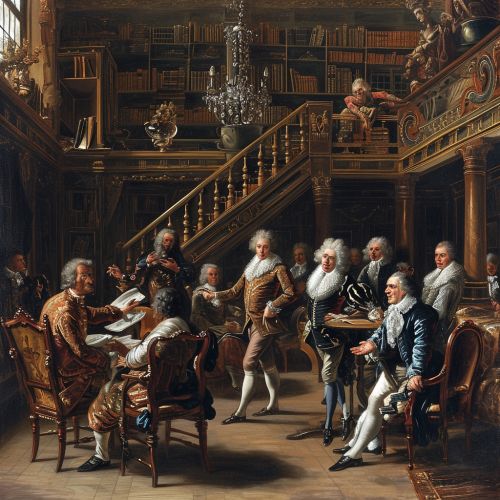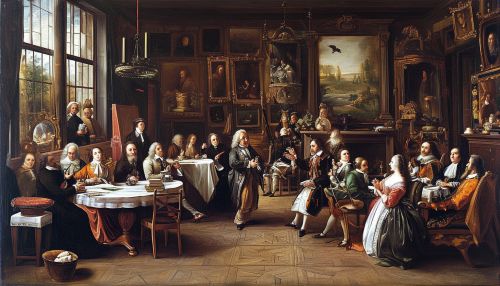Enlightenment (Age of Reason)
The Enlightenment (Age of Reason)
The Enlightenment, also known as the Age of Reason, was an intellectual and philosophical movement that dominated the world of ideas in Europe during the 17th and 18th centuries. The Enlightenment emerged out of a European intellectual and scholarly movement known as Humanism.


Origins and History
The Enlightenment's origins are often associated with the scientific revolution of the 17th Century, as the breakthroughs in astronomy, physics, and mathematics by figures like Galileo, Kepler, and Newton challenged traditional, religiously-based conceptions of the world. The Enlightenment was marked by an emphasis on the scientific method and reductionism along with increased questioning of religious orthodoxy—an attitude captured by the phrase Sapere Aude, "Dare to know".
Key Concepts and Philosophies
Enlightenment thinkers sought to apply reason to understand nature and guide human action. They challenged traditional authority and embraced the notion that humanity could be improved through rational change. The Enlightenment produced numerous books, essays, inventions, scientific discoveries, laws, wars and revolutions. The American and French Revolutions were directly inspired by Enlightenment ideals and respectively marked the peak of its influence and the beginning of its decline.
Rationalism
Rationalism, the belief that reason is the primary source of knowledge, was a central tenet of the Enlightenment. This contrasted with the previously dominant model of knowledge, scholasticism, which held that knowledge is derived from divine revelation. Rationalists such as Descartes, Spinoza, and Leibniz sought to develop mathematical and logical systems that could provide a framework for understanding the natural world.
Empiricism
Empiricism, the belief that knowledge comes from sensory experience, was another key Enlightenment philosophy. Empiricists such as Locke, Berkeley, and Hume argued that all knowledge comes from experience, and that the mind at birth is a blank slate, or tabula rasa.
Deism
Many Enlightenment thinkers—especially in England and France—adopted Deism, a theological position that rejects the notion of a personal God, the divinity of Christ, and the Bible as a source of revelation. Instead, deists believed in a supreme being who created the universe but does not intervene in its functioning or the lives of its inhabitants.
Impact and Legacy
The Enlightenment has had a profound impact on the cultural, political, and economic life of the West. Its ideas have been a fundamental foundation for the United States Declaration of Independence, the Constitution, and the Bill of Rights. Its influence is also seen in the ideas of equality, liberty, and the separation of church and state.
